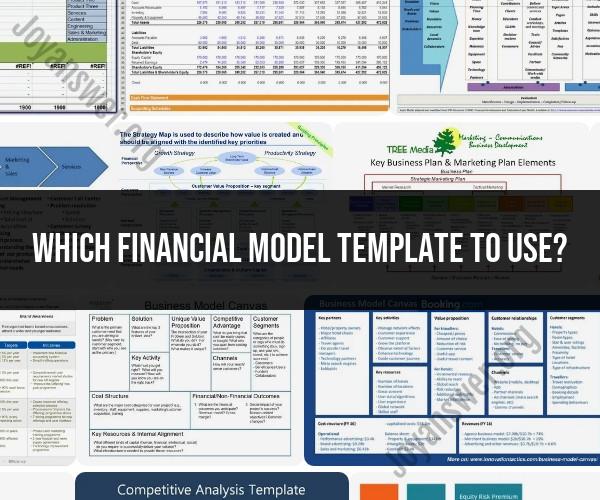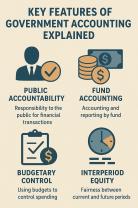Which financial model template to use?
Choosing the right financial model template for your needs depends on several factors, including the specific purpose of your financial analysis, the complexity of your business or project, your level of expertise in financial modeling, and the industry you're operating in. Here are some guidelines to help you select the appropriate financial model template:
Define Your Purpose:
- Start by clearly defining the purpose of your financial analysis. Are you creating a business plan, seeking funding from investors, evaluating an investment opportunity, or conducting internal financial planning? The purpose will dictate the type of financial model template you need.
Consider Your Business or Project Type:
- The nature of your business or project can influence the choice of template. For example:
- Startups: If you're a startup, you may need a template that focuses on projections for the initial years of operation, emphasizing factors like customer acquisition costs and runway.
- Existing Businesses: Established businesses may require templates for annual budgeting, forecasting, or evaluating expansion opportunities.
- The nature of your business or project can influence the choice of template. For example:
Complexity of Analysis:
- Consider the complexity of your financial analysis. Some templates are relatively simple and suitable for basic financial projections, while others are more advanced and can handle complex scenarios and financial modeling.
Industry-Specific Templates:
- Some industries have unique financial modeling requirements. For instance, real estate, manufacturing, and SaaS (Software as a Service) businesses may each require specialized templates tailored to their specific financial metrics.
Your Expertise Level:
- Assess your own proficiency in financial modeling. If you're new to financial modeling, it may be wise to start with simpler templates and gradually move to more complex ones as your skills improve. Conversely, if you're experienced, you may opt for more sophisticated models.
Software Familiarity:
- Consider the software you're comfortable with. Many financial model templates are designed for use with spreadsheet software like Microsoft Excel. If you're proficient in Excel, you'll have more flexibility and options in choosing templates.
Template Sources:
- Look for templates from reputable sources. Templates from financial modeling experts, universities, or financial institutions are often reliable and well-structured.
Customizability:
- Determine if you need a template that can be easily customized to fit your specific needs. A template that allows you to modify assumptions, add variables, or adapt to changing circumstances can be valuable.
Templates for Specific Tasks:
- There are various types of financial models, including cash flow models, valuation models, budget models, and more. Choose a template that aligns with the specific task you're trying to accomplish.
Feedback and Reviews:
- Read reviews or seek feedback from others who have used the template you're considering. Their insights can help you gauge the template's effectiveness and reliability.
Ultimately, the right financial model template for your needs will depend on your unique circumstances and requirements. It may be helpful to start with a basic template and gradually transition to more advanced models as you gain experience and your financial analysis needs evolve. Additionally, consider seeking guidance from financial experts or mentors who can provide insights into selecting the most appropriate template for your specific situation.
1. Financial Model Templates: Selecting the Ideal Framework for Analysis
Financial model templates are pre-built Excel models that can be used to forecast a company's financial performance. They can be used for a variety of purposes, including budgeting, forecasting, and fundraising.
When selecting a financial model template, it is important to consider the specific needs of your business and the type of analysis that you need to perform. Some factors to consider include:
- The size and stage of your business: Financial model templates are available for businesses of all sizes and stages. If you are a startup, you may need a simpler template that focuses on forecasting revenue and expenses. If you are a more mature business, you may need a more complex template that includes additional features such as cash flow forecasting and balance sheet forecasting.
- The industry in which you operate: Financial model templates are available for a variety of industries. If you are in a specialized industry, you may need a template that is designed specifically for your industry.
- The type of analysis that you need to perform: Financial model templates can be used for a variety of different types of analysis, including budgeting, forecasting, and fundraising. If you are unsure which type of analysis you need to perform, you should consult with a financial advisor or accountant.
2. Choosing the Right Financial Model Template: Tips for Success
Here are some tips for choosing the right financial model template:
- Consider your needs: What are you using the financial model for? What types of analysis do you need to perform?
- Do your research: There are many different financial model templates available. Take some time to research different options and compare features.
- Ask for help: If you are unsure which financial model template is right for you, consult with a financial advisor or accountant.
3. The World of Financial Models: Finding the Perfect Template for Your Needs
There are a number of different sources where you can find financial model templates. Some common sources include:
- Online template libraries: There are a number of websites that offer free and paid financial model templates.
- Software providers: Some software providers offer financial model templates as part of their software packages.
- Financial advisors and accountants: Many financial advisors and accountants offer financial model templates to their clients.
Once you have found a financial model template that meets your needs, you can customize it to fit your specific business. This may involve adding or removing features, or changing the assumptions that are used in the model.
It is important to note that financial model templates are just a tool. They should not be used as a substitute for the advice of a qualified financial advisor or accountant.












